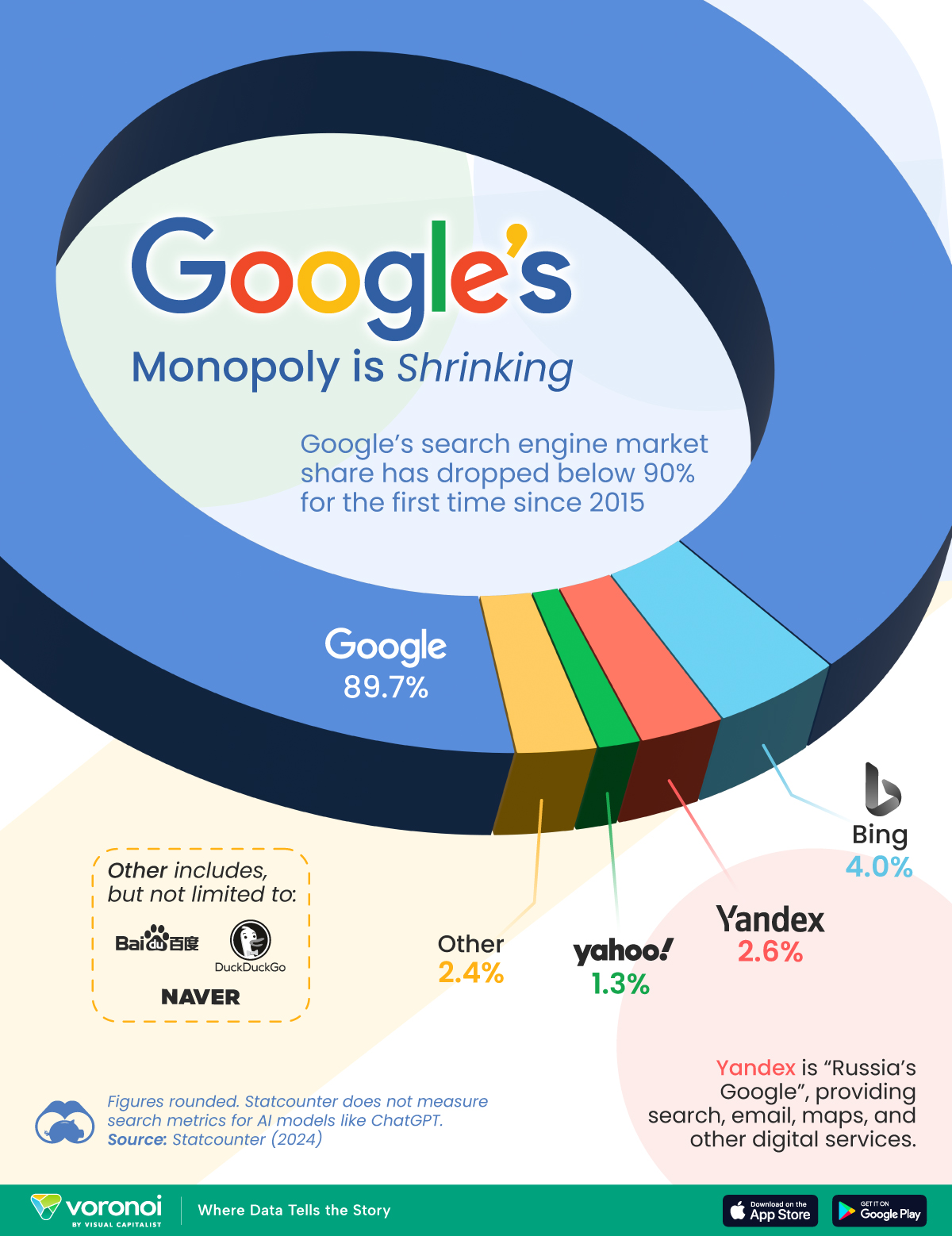
Google's $26 Billion Problem Just Got Worse
Judge Mehta basically said "Google, you're a monopoly, but we're not gonna break you up because that would be messy." Instead, he's forcing them to share search data with competitors and stop paying Apple $18 billion a year to be the default search engine.
Anyone who's tried to use Bing knows Google's search dominance isn't exactly an accident. They've been paying device makers massive sums to make sure you never see competitors. The DOJ found that Google spends over $26 billion annually on these exclusive deals, with $18 billion going to Apple alone just to be Safari's default search engine.
The judge finally called bullshit on this, but good luck getting meaningful data out of Google - their "certain search index data" will probably be the most useless subset they can legally provide. Google maintains 90% market share precisely because they've made it nearly impossible for competitors to get distribution. DuckDuckGo's CEO has testified that Google's exclusive deals are the "fruit of the poisonous tree" that prevents real competition.
What Google Actually Has to Do (And How They'll Probably Weasel Out)
No more paying Apple $18 billion to make Google the default search engine. No more bundling Chrome with Android licensing deals. Sounds tough until you realize Google's army of lawyers will spend the next six years finding creative interpretations of "exclusive deals."
The court's 270-page ruling specifically targets Google's licensing agreements with device manufacturers like Samsung and LG. But legal experts note that the language leaves plenty of room for interpretation.
The real kicker is the data sharing requirement. Google has to give competitors "certain search index and user-interaction data" at "standard rates." Translation: they'll share the scraps they're legally required to provide at prices that make it pointless to use. Any developer who's tried to scrape Google search results knows their anti-bot measures are more sophisticated than some governments' cyber defenses - now imagine what their "compliance" API will look like. Microsoft's Bing already struggles with just 3.9% market share despite billions in investment.
Six Years to Find Loopholes
Google gets six years of "oversight" starting in 60 days. That's six years for their legal team to find every possible workaround while their competitors beg for table scraps of data. The oversight committee will probably spend most of their time arguing about what "qualified competitors" means while Google continues business as usual.
Europe's Digital Markets Act is actually tougher than this, but apparently Judge Mehta thought breaking up a monopoly would be too scary for American capitalism. As competition law expert William Kovacic noted, we're basically debating whether Europe has the right idea while Google maintains its 90% search monopoly.
Sundar Pichai's testimony about "stifling innovation" and "user privacy" is classic monopolist bullshit. Translation: "If we can't pay people to use only our products, innovation dies." Because apparently paying Apple $18 billion to hide competitors is what innovation looks like these days.
